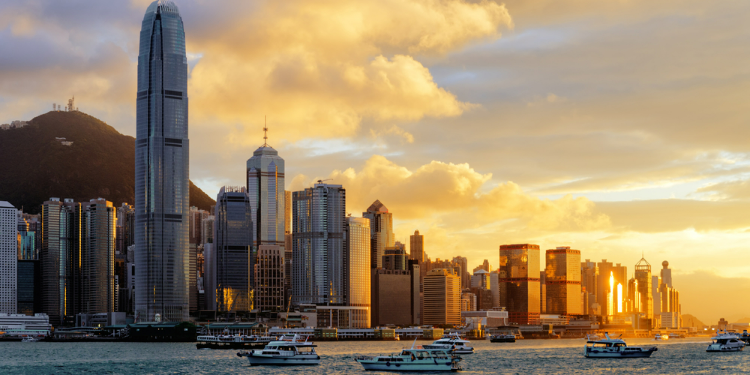An alarming number of expats are leaving following political turmoil and a strict Covid lockdown. In only the first quarter of 2022, an astounding 140,000 people left the city.
"The local government is so desperate to retain foreign talent", the author Tiffany Ip says, "that it has now created a financial stimulus program to encourage foreign students and expats to remain. Each eligible person will receive HK$5,000 (637 USD)."
Hong Kong has been a leading global financial center since the 1970s, ranking alongside New York and London. For nearly four decades, its low taxes and other environmental factors favorable to business have made it the location of choice for offshore offices in Asia.
How did this recent exodus come about, and why is the continued presence of high-skilled expats so crucial to the economic survival of the island-city?
Factors in the exodus of expats
- Political instability
Since 2014, Hong Kong has been experiencing civil protests due to citizen dissatisfaction with China's way of overseeing the region. This has brought clashes with the police in public spaces, the use of tear gas and pepper spray in the streets, and severe disruption of services like the metro and even the international airport.
Political stability is often cited as one of the strongest points in making an expat destination attractive. It is one of the reasons behind Canada's and New Zealand's appeal to expats, for instance. The trend of migration away from Hong Kong started with rising political instability.
Even in 2019, before the pandemic, close to 100,000 people left Hong Kong indefinitely, according to the region's Immigration Department. Some expats who decided to relocate elsewhere cited recent changes in Hong Kong's law and education curriculum made by the Chinese government as reasons to move. Their top destinations are Australia, Canada, the UK and Singapore.
- Extremely strict Covid rules
While Hong Kong successfully kept Covid-19 at bay in 2020 and much of 2021, things changed for the worse in early 2022. By March 2022, Hong Kong had the highest per capita rate of Covid-related deaths in the world (38 residents per million), with over 200 people dying every day.
The death toll was a driving force of out-migration in early 2022, but extremely strict social distancing rules have been a greater one. Even as the death toll has subsided in mid-2022, many of these strict rules remain. While most of the world is relaxing the last sanitary measures, Hong Kong still has many of the same rules as at the start of the pandemic.
For example, Covid-positive patients in Hong Kong are still being equipped with electronic bracelets to have their movement monitored. All international arrivals into Hong Kong still need to pay for a 7-day quarantine in a government-designated hotel. The hotels are saturated with travelers, and it is difficult to book a place even when one is willing to pay. In addition, no non-residents were allowed into Hong Kong until May 2022 – this included the relatives and business partners of Hong Kong-based expats.
The newly-appointed Chief Executive of Hong Kong, John Lee, relaxed some of the rules in June 2022. For instance, the mandatory quarantine in a hotel was shortened from 14 days, which was the law, until May. Lee is also looking to expand home quarantine.
In an effort to make Hong Kong recover as a hub of connection flights between Asia and the rest of the world, the Chief Executive has also scrapped their flight-ban policy. This strict policy banned airlines from flying through Hong Kong for 5 days if any of their planes was found to have five Covid-positive travelers. Major international airlines like Emirates and Qatar Airlines were affected. From July 2022, contravening airlines will now only receive a warning and a relatively small fine of HK$2,548 (325 USD).
Expats are “global citizens” whose family, friends, co-workers and business partners are often scattered all across the globe. They often travel, both for personal and professional reasons. Many had chosen Hong Kong as the city of expatriation in the first place because of how well-connected it is to the airports of the world.
Being isolated from their families, being partially cut off from international business, being deterred from travel by a scarcity of flights owing to the flight ban, facing abnormally high ticket prices triggered by this scarcity, etc. All of this drove many expats to ultimately choose to return to their home country or even move to another country of expatriation with more flexible rules.
Over two years, the Hong Kong government gave no clear roadmap for the easing of restrictions, which further bred a sense of frustration and uncertainty among expats.
- High cost of living
The cost of living is, alongside political volatility, another pre-pandemic issue that has been exacerbated after 2020. Hong Kong has topped the ECA Index's ranking of the most expensive cities around the world to live in in 2020, 2021 and 2022 – three consecutive years of the pandemic.
Worldwide inflation has worsened the cost of living, and the city's infamous cramped apartments have become even more unlivable as people were confined to them during the sanitary lockdown. A one-bedroom apartment costs a minimum of HK$12,000 (1500 USD) in rent per month. In 2021, the selling price of a micro-apartment of less than 200 square feet rose exponentially to HK$25,512 (about 3,250 USD) per square foot.
Many expats, especially middle-class ones who cannot afford spacious apartments, found it unfair to be paying so much to live uncomfortably during a lockdown. They preferred to move somewhere else for good.
Foreign talent drain and economic downturn
The reasons listed above have triggered an expat brain drain away from Hong Kong, both in terms of individual expats and foreign companies. The city is losing out to regional competitors as an Asian business hub, especially to Singapore.
According to a survey published by the European Chamber of Commerce in March 2022, nearly half of all European companies based in Hong Kong are considering leaving. Some have already left, like the German multinational chemical company BASF SE, which relocated its regional operations to Singapore in January 2022.
Other multinationals moved even earlier, like the American investment fund Elliott Management and apparel giant VF Corporation, which owns Timberland footwear. They both left in January 2021. Elliot Management's workforce was relocated to Tokyo and London, while VF reallocated its human resources to Shanghai, Singapore and Kuala Lumpur.
Other multinationals are not leaving completely but simply downsizing their Hong Kong offices. For instance, the finance giant JPMorgan has shifted several managing directors to other countries, as it was becoming hard for them to conduct international business via only Zoom calls when travel is restricted.
This exodus of businesses signals not only a loss of the skills and expertise these expats brought to Hong Kong but also a loss of their savings kept in the local banking circuit and a loss of revenue from their real estate leases.
A report from the Mandatory Provident Fund Schemes Authority published in December 2021 shows that HK$2.6 billion (344 million USD) was permanently pulled from savings funds by people leaving Hong Kong in the last quarter of 2021. This included pension funds.
Much of the wealth of Hong Kong's residents is held in real estate. An increasing number of properties are being listed for sale. Indeed, Bank of America says that between 2021 and 2025, over 90,000 apartments will be put up for sale by people moving to the UK. It is a form of outflow of wealth out of Hong Kong.
Commercial real estate vacancies have also jumped as multinationals leave. According to the real estate services provider CBRE Group Inc, nearly 9.1 million square feet of office space now stands empty in Hong Kong. This mismatch between supply and demand has forced real estate companies to lower rent (by 19.3% in 2020 & 4.7% in 2021, according to Cushman & Wakefield), and hence make less profit.
Unsurprisingly, all of this has caused Hong Kong's GDP to fall by 4% in the first quarter of 2022. This was worse than Bloomberg's forecast of 1.3%. The Hong Kong stock market has also fallen from third to fourth position worldwide, now ranking behind Shanghai's stock market.
The easing of part of the travel restrictions and the stimulus plan for foreigners are signs that the Hong Kong government wants to recover the city's pre-pandemic business environment and appeal to expats. Its slowness in removing all the restrictions, however, alongside political instability that might persist beyond the pandemic, might prove to be hurdles.
















